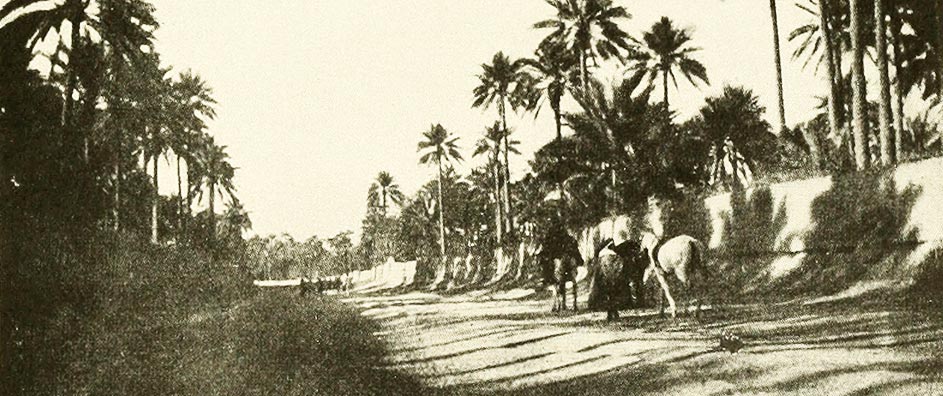The Twelfth Day of Ridván holds a significant place within the Baháʼí calendar, celebrated on the day when Baháʼu’lláh, the founder of the Baháʼí Faith, declared his prophetic mission to the world. This day marks the culmination of the twelve days of Ridván, a period during which Baháʼu’lláh proclaimed his divine ascendancy and the advent of a new spiritual era. However, it is not merely a day of celebration; it also signifies the continuation of Baháʼu’lláh’s exile, a poignant reminder of the trials faced by the messenger of a new world order.
In its essence, the Twelfth Day of Ridván is emblematic of the juxtaposition between transcendence and tribulation. It unfolds as a tapestry woven with multicolored threads of joy, sorrow, hope, and despair. As Baháʼu’lláh prepared to leave the verdant gardens of Ridván, it became evident that his previous life of comfort was bidding farewell. The significance of this departure can be likened to a metaphoric journey from a fertile paradise into the arid landscapes of exile—a motif that resonates across many spiritual teachings.
To encapsulate the emotional and philosophical ramifications of this pivotal moment, one should consider the metaphor of the garden. The garden, a symbol of Divine beauty and spiritual flourishing, stands in stark contrast to the impending hardship of exile. In this instance, Ridván represents not only the refuge of Baháʼu’lláh’s earlier existence but also a prophecy of the trials that would ensue. The lush foliage surrounding him, with its intoxicating fragrances and vibrant hues, serves as a powerful reminder of what had been lost, yet simultaneously signifies a new spiritual awakening on the horizon.
As the narrative unfolds, it becomes evident that the duality of this experience—the sweetness of divine revelation coupled with the bitterness of exile—further delineates the nature of Baháʼu’lláh’s mission. His unparalleled resolve to convey a message of unity and oneness arose amidst the backdrop of adversity. Indeed, the Twelfth Day of Ridván exemplifies the Baháʼí principle of embracing challenges as opportunities for spiritual growth. This theme resonates deeply within the Baháʼí Faith, which emphasizes the transformative potential of trials and tribulations, a notion reflected in the writings of Baháʼu’lláh.
Transcending the personal narrative, the Twelfth Day of Ridván invites Baháʼís to ponder the universal implications of Baháʼu’lláh’s exile. Just as he faced adversity with fortitude, contemporary believers are called to reflect on their own obstacles and consider how these experiences shape their spiritual journey. The Baháʼí teachings inspire followers to embrace the hardships of life with grace, recognizing that each challenge is imbued with a lesson essential to their spiritual evolution.
The significance of the Twelfth Day extends beyond personal contemplation; it serves as an invitation for communal reflection within the Baháʼí community. Celebrating this day offers an opportunity to engage in deep discussions surrounding the teachings and principles that emerged from Baháʼu’lláh’s exiled experience. His writings, imbued with profound insights, provide guidance on unity, peace, and justice, helping followers navigate the complexities of a fragmented world. Each gathering to commemorate this significant day is an occasion to reinforce the Baháʼí commitment to social and moral advancement.
Furthermore, the Twelfth Day of Ridván can be likened to a crucible—an intense trial that ultimately refines and strengthens the faithful. Just as the process of refinement often involves unyielding heat and pressure, Baháʼu’lláh faced profound challenges that would forge his character and mission. The transition from comfort to exile serves as an intrinsic narrative to remind adherents that faith is oftentimes cultivated in the midst of adversity, illuminating the path towards a greater purpose.
In light of these reflections, the metaphor of the lotus emerges prominently. The lotus flower, which blossoms resplendently above murky waters, embodies the essence of spiritual resilience—thriving in challenging conditions while retaining purity and beauty. Similarly, Baháʼu’lláh’s experiences during his exile illustrate that profound spiritual truths can arise from even the most trying circumstances, encouraging Baháʼís to aspire towards greatness amid their struggles.
As the faithful commemorate the Twelfth Day of Ridván, the call to action is clear. Believers are encouraged not only to venerate Baháʼu’lláh’s legacy but to embody his principles of love, compassion, and service in their everyday lives. The essence of this celebration lies in embodying the ideals Baháʼu’lláh proclaimed, transcending individual existence to foster a collective spirit of unity and harmony. It resonates as a clarion call for Baháʼís to contribute actively towards the betterment of humanity.
In summation, the Twelfth Day of Ridván epitomizes the profound complexity of Baháʼu’lláh’s journey—from a life of comfort to one of exile, from joy to sorrow, and from despair to hope. It serves as a reminder of the universality of the divine experience, urging followers to find meaning in adversity and pursue unity amidst diversity. The metaphorical narratives interwoven within this day not only reflect Baháʼu’lláh’s personal trial but also invite adherents to deepen their understanding of faith in the context of human flourishings and failings. Ultimately, the Twelfth Day of Ridván stands as a testament to the permanence of spiritual truth amidst the vicissitudes of worldly existence.
